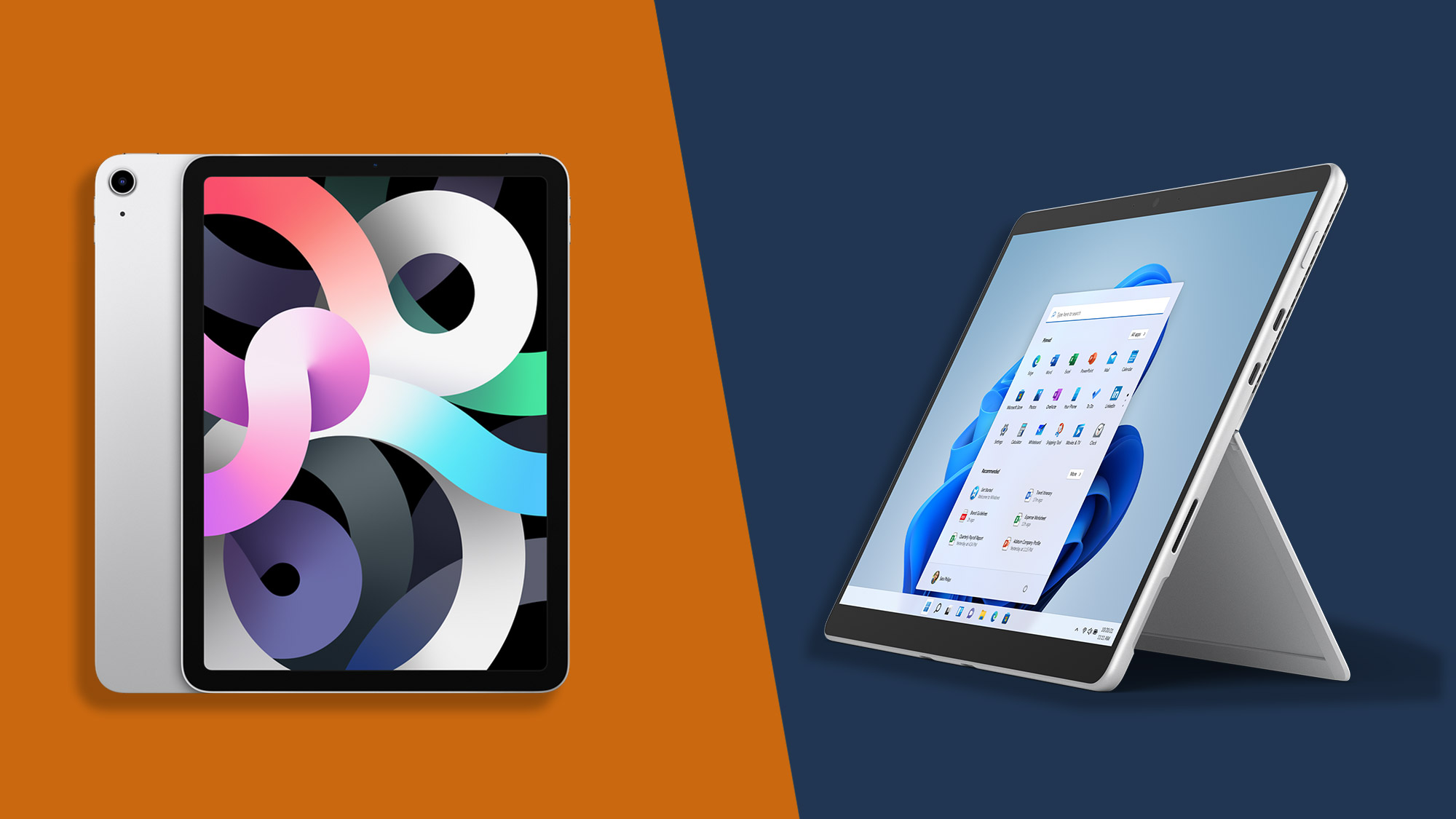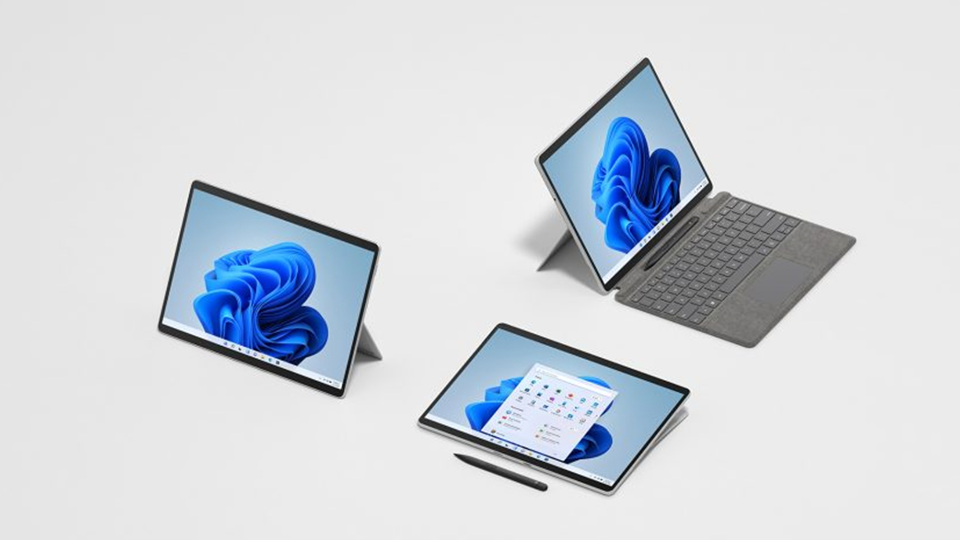New Windows 11 update shows Microsoft still wants to take down the iPad
Windows 11 update could make it an iPad killer

Sign up for breaking news, reviews, opinion, top tech deals, and more.
You are now subscribed
Your newsletter sign-up was successful
Microsoft has released a software preview for Windows 11 that will make using the operating system on tablet devices, and 2-in-1 laptops, much better.
As DigitalTrends reports, Windows 11 Insider Preview Build 22563, which has just been released to people signed up to receive early versions of Windows 11 to test, optimizes the taskbar on tablets and 2-in-1 devices.
In the new update, the taskbar now has two states: a collapsed and expanded mode. When the taskbar is collapsed, it appears much thinner, giving you more screen real estate and helping to prevent accidental presses of taskbar buttons.
Meanwhile, the expanded mode makes the taskbar wider, allowing you to select items more easily, such as apps, using the touch screen.
Switching between the two modes looks pretty easy as well, and is done by simply swiping your finger up or down at the bottom of the tablet’s screen where the taskbar resides.
It seems that this version of the taskbar will only be available on Windows 11 tablets and 2-in-1 laptops, which have touchscreens that either detach from the keyboard, or can be folded back, and used as a tablet. Desktop PCs and traditional laptops won’t get this new taskbar.
As it’s currently in a Preview Build, it also means that regular Windows 11 users won’t see it just yet. However, if testing goes well and there’s a positive reaction from Windows Insiders, we could see the feature appear in a Windows 11 update sometime in the future.
Sign up for breaking news, reviews, opinion, top tech deals, and more.
Analysis: Microsoft’s tablet ambitions remain

This new update shows that Microsoft’s tablet ambitions remain undeterred. While its rivals Apple and Google have found immense success with tablet devices, Microsoft has yet to do the same. Its attempts to take on the mighty iPad and gain tablet market share have been a mixed bag.
There was the deeply unpopular Windows 8, which dropped much of the classic interface of Windows, including the taskbar and Start menu, for an interface with large icons that was aimed at tablet use. The problem was, Windows 8 tablets were largely ignored, and desktop and laptop users hated having to put up with an interface that was designed for touchscreens they didn’t have.
Microsoft found more success with its Surface Pro line of 2-in-1 devices, alongside Windows 10, which struck a more even balance with an interface that was better suited to traditional PCs, while also having a tablet mode.
However, Surface Pro sales still lag behind iPad and Android tablet sales, but it seems Microsoft isn’t giving up. If Windows 11 continues to evolve to work even better on tablet devices, then this could be Microsoft’s best bet yet to take on Apple and Google.
- These are the best Windows tablets you can buy right now

Matt is TechRadar's Managing Editor for Core Tech, looking after computing and mobile technology. Having written for a number of publications such as PC Plus, PC Format, T3 and Linux Format, there's no aspect of technology that Matt isn't passionate about, especially computing and PC gaming. He’s personally reviewed and used most of the laptops in our best laptops guide - and since joining TechRadar in 2014, he's reviewed over 250 laptops and computing accessories personally.